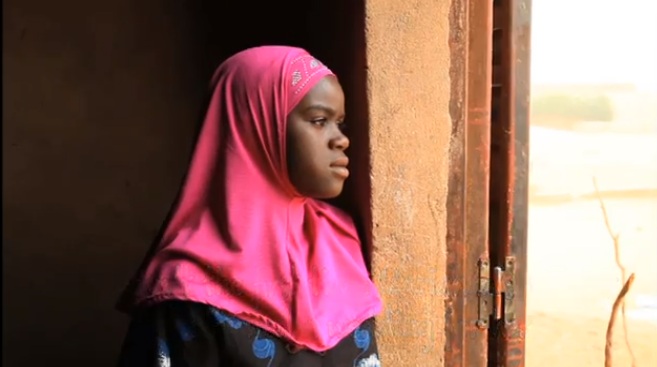In 2012, in Dosso, Niger, a 13-year-old girl named Mariama discovered that she was to be married in a few days. She was sad and afraid and could not eat or sleep.
She didn’t want to be married, but her mother insisted thinking it was the best way to protect her, Plan International, an organization that works to advance children’s rights and equality in the world, reported in a story and video.

Screen Grab YouTube
At 13, Mariama, of Niger, was chosen to be married. Advocates convinced her family to rescind the arranged marriage agreement.
Child marriage is a complicated. But child marriage isn’t just something that happens in faraway countries like Niger, it is happening here in the United States, in states such as Alabama, Arizona, Arkansas, California, Delaware, and even here in Connecticut.
From 2000-2010, there were an estimated 248,000 child marriages in the U.S., according to Unchained at Last, an organization dedicated to ending forced and child marriage in the U.S. In Connecticut, 980 minors were married, the youngest a 14-year-old, according to data on Unchainedatlast.org
Each state has its own legal age rule, in Connecticut, child marriage is prohibited for anyone 16 and younger. At 17, a teen must have parental consent to marry; in California it’s 18; Alabama its 16.
Children from impoverished countries who marry at a young age are at higher risk of contracting the human papillomavirus (HPV), HIV/AIDS and sexually transmitted diseases, according to a study published in Emerging Infections Diseases.
Because of their age, they often have high-risk pregnancies, endangering their own health. In sub-Saharan Africa, girls between the ages of 15 and 19 are 2-8 times more likely to become infected with HIV than boys of the same age, according to a study published in Emerging Infectious Diseases. The HIV incidence among females 15–19 years of age who are married is 89% compared to single women at 66%. Pregnancy poses many challenges for young girls. Approximately 25 million pregnant females in poor countries are exposed to malaria and other diseases which can complicate their pregnancies, the report outlined.
At its heart, child marriage is rooted in gender inequality and the faith that females are inferior to males, advocates say.
In many communities where child marriage is practiced, girls aren’t valued nearly as much as boys – they are viewed as a burden to their family, advocates say.
Marrying a daughter at a young age is seen as a way to ease the family’s monetary struggles and a way to have the husband’s family assume financial support.
Those who support child marriage say it is a way to create relationships between households who can then rely on each other, sharing each other’s assets like food, money and even seeds to plant a garden. When people live in poor conditions it is challenging to feed a family.
Mariama’s Story
When word spread that Mariama would be married, teachers and her classmates teased her, calling her “the new bride,” according to the Plan International report. This situation made her not want to go to school.
Mariama’s mother wanted her daughter to marry because she worried when her daughter socialized with her friends that she would meet a boy and get pregnant. Then, no one would want her, Mariama’s mother explained in the video report.
Mariama’s family lives in poverty and her mother was offered $200 for her daughter’s hand in marriage. Her mother said that she desperately needed the money since she is widow and never knows what she will have to feed her family each day.
Her mother said that once Mariama is married “you’re no longer responsible for feeding her. You don’t have to worry about her getting pregnant out of wedlock.”
In the video, Mariama said, “You need to be patient, I’m not ready to have sex with a man. Please stop this marriage for me.”
The family of the girls much like Mariama like to say they are marrying their girls out of poverty but actually, the money they are given as dowry if they are given any is not enough. And in some traditions, it is the bride’s family that has to pay the dowry. Because of their living conditions Young girls’ education and life are being stolen from them and they are thrown into the life of a married woman.
“Sending girls to school is essential for reducing child marriage,” said a Plan advocate. Mariama asked to return to school and said she hopes to become a judge.
With Plan’s help Mariama was able to return to school and the marriage was halted by a judge. Mariama passed the entrance exam and went on to secondary school.
Thomasine Fletcher, 18, is a senior at the Cooperative Arts & Humanities High School, New Haven. Her art is creative writing with a focus on poetry.